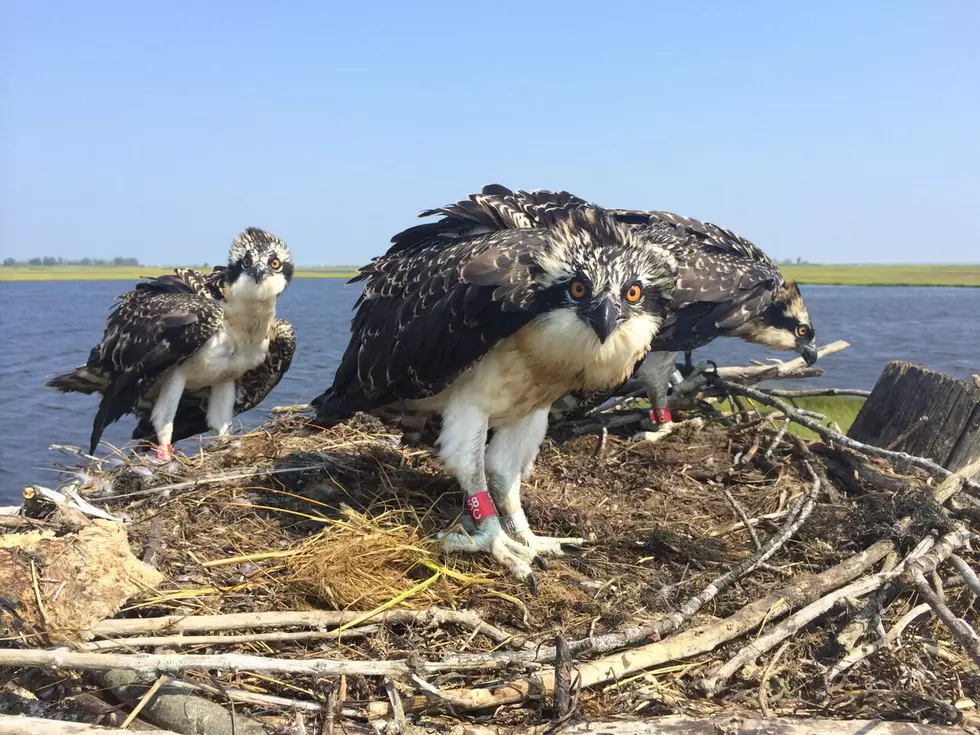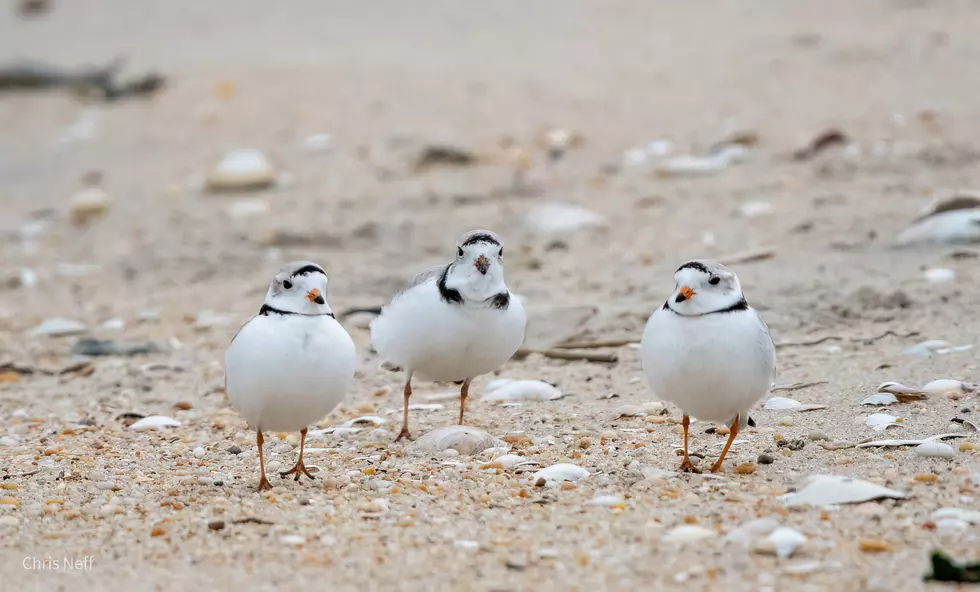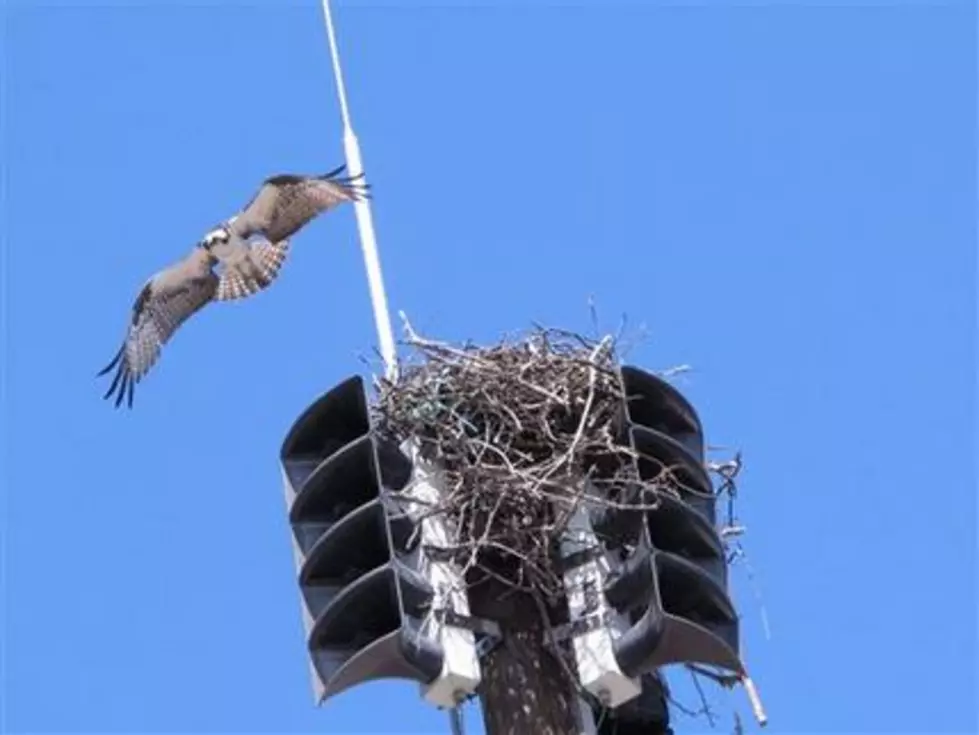
One sign of spring in New Jersey: The return of the ospreys
One of the first signs of spring in New Jersey is the return of the ospreys in late March. The birds have started returning to the Garden State from their southern wintering grounds in Florida, the Gulf Coast, the Caribbean and South America and will continue to do so over the course of the next couple of weeks.
David Wheeler, executive director of the Conserve Wildlife Foundation of New Jersey, said the male ospreys typically return first to prepare the nest for its mate.
Ospreys typically return to the same nests in New Jersey each year. They are monogamous pairs so one sees a pair of ospreys nesting, it's a good chance they've been nesting in that spot for years and will continue to do so as long as it remains safe for them.
The osprey population was not always very lush as it is today. Wheeler said in the 1970s, there was only a few dozen ospreys in New Jersey. In the past couple of years, the state has seen 932 young ospreys. He attributes this rebound in New Jersey to the cleaner water quality along the coast, rivers and reservoirs as well. As the water rebounds, the fish return, an osprey's main source of food. For this reason, ospreys are a symbol of healthy water, Wheeler said.
"As fish have recovered and the waters have gotten cleaner, ospreys have come back," he said. "It's also a testament to the incredible work of our scientists and volunteers who have helped install so many osprey nesting platforms all along the Atlantic Coast and the Delaware Bay Coasts in particular."
Wheeler said ospreys can be seen in any spot along the coast. They can be seen in areas from the New York Bay area in the Meadowlands down to the Atlantic Coast. The best chance to see an osprey is to spend an hour outdoors anywhere along the coast.
Ospreys want to be in New Jersey because the coast provides a steady and healthy source of fish as well as some degree of safety from ground predators such as raccoons and feral cats. That's why nesting platforms — poles with a square next on top — are important, he said.
One of the main risks to ospreys is the increase amount of plastics in New Jersey waterways. There's a good chance ospreys may bring plastics up to their nests thinking they are good nesting materials. Often, they become entangled in these plastics.
More from New Jersey 101.5:
More From New Jersey 101.5 FM









